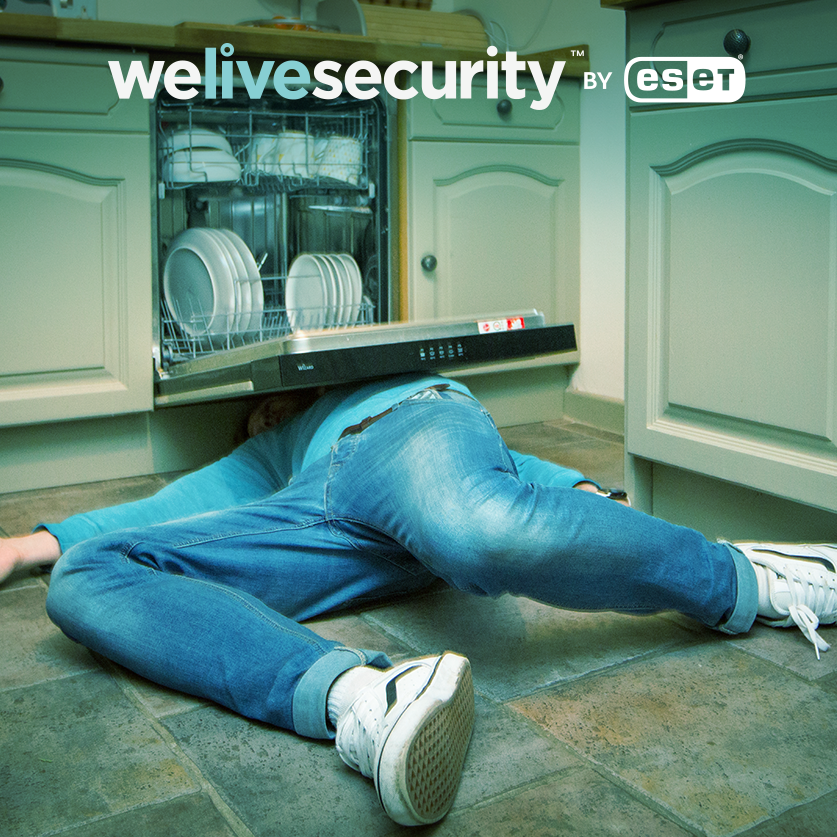It is ultimately necessary for every device in our home to be connected to Internet; And could it turn against us?
Read why Jake Moore, Security Specialist at the international company cyber securitys ESET, prefers to use home appliances manually.

If you are trying to buy a new device these days, it is very likely that you will be led to the most modern, modern smart devices first. Whether you are looking for a new dishwasher, refrigerator or even a toaster, chances are there is an internet connection device waiting to entice you.
But what is the point of all this spread of the Internet of Things (IoT)? Do we really want every device in our homes to be smart, or do these companies have other plans? Do they just turn objects into smart devices to gain access to more information about us?
According to Jake Moore, Security Specialist at cyber security company ESET, from the toothbrush he sends us information to how well we brush our teeth in the morning, to the smart fork that senses we're eating too fast, all point to a potentially chaotic future when it comes to IP addresses.
The Internet of Things has evolved over the last decade and, while we may like a good gadget with really smart features, the question we need to ask is "where should we draw the red line?".
With more and more smart products on the market as standard, what if one really does not want to buy a washing machine with an Internet connection? Will it make our lives easier? And what about the security implications of all these extra IP addresses in the home?
Data collectors
Recently Jake Moore was looking to buy a new dishwasher and after researching, he found one that had very good reviews. He tells us his experience.
"I know that in fact the dishwasher does not have to be smart, but the price was the same and the computer inside me really wanted to know its capabilities or see if it could improve its life a bit. So I went to the market and installed the relevant application "says Moore.
“When I connected the app to the dishwasher, I wanted to see how I could take advantage of the connectivity. I played around with the app a bit and found out what it has to offer. I opened the door to load the dishwasher, but soon got an alert. I checked it phone and realized that I had been alerted that the laundry door had been opened... I know! I opened it!
I quickly turned off this alarm, but later that afternoon and although I could turn on the washing machine remotely, I stood right next to it as I placed the last dish in the washing machine. Although I had the tablet with me, it was much faster to turn it on manually.
However, two hours later, everything changed at home. I was standing next to my new device when its door started opening and closing on its own like some evil spirit had possessed it and was about to get me! Maybe someone had hacked into my washing machine and filled it with me malicious software to kill me remotely? I soon realized that it was actually the automatic door opening setting that worked to improve the 'drying performance'.
This incident made me think: do devices and other gadgets really need to be smart? In this case, I'm sure the application did nothing to simplify my life. So I deleted the application and. Tried not to be near the door of the washing machine at the end of the wash cycle. ”
According to Moore, companies desperately need our data. Cars have been sending a lot of information to their manufacturers for many years, they are the first to tell you that you have exceeded the limit of 10.000 miles and now you need service. This is now the rule for other gadgets in the house and we are willing to accept it.
However, if they get into the wrong hands this information can be used against us. Cybercriminals are constantly attacking websites looking for information and unfortunately some personal data inevitably continues to be compromised and end up on the dark web. Theoretically, malicious agents could gain access to this data in the cloud and learn our daily habits, which could include information about when we are away from home.
Smart home appliances collect a lot of personal data and store it in the cloud for many purposes - in Moore's personal view, it helps little to make products better.
According to the Security Expert at the international cybersecurity company ESET, if your smart device needs to be connected to the internet to work, consider reducing the number of personal data you provide to manufacturers.
In addition, use unique passwords or passwords, enable two-factor authentication where possible, and update your devices to avoid as many vulnerabilities as possible.
"Personally, until the time comes when smart dishwasher applications will be able to place dishes in the washing machine and remove them after washing, I think I will stay true to the traditional use of household appliances," says Jake Moore.





